Safe Education: Success Case of Subvention for School Shelters was presented at the Open Government Week
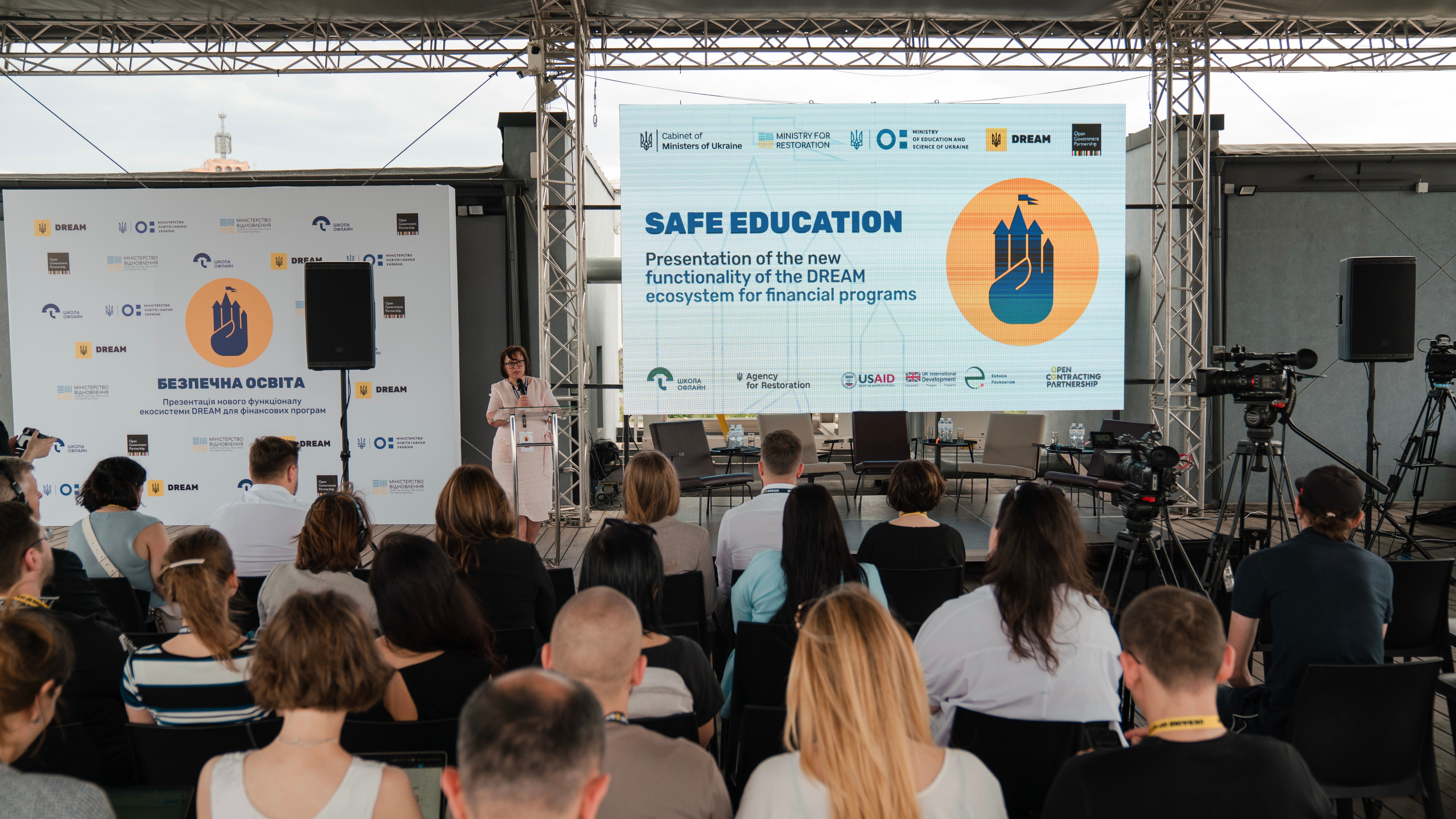
Representatives of the Government, the DREAM team, local and regional authorities revealed the details of cooperation under the subvention for arrangement of school shelters.
This year, the Ministry for Restoration, the Ministry of Education and Science of Ukraine, and the Ministry of Digital Transformation initiated a new approach to the distribution of subvention for projects of shelters and canteens in educational institutions. The main difference is using the DREAM ecosystem to ensure fast and transparent digital procedures and selecting projects by the MES commission.
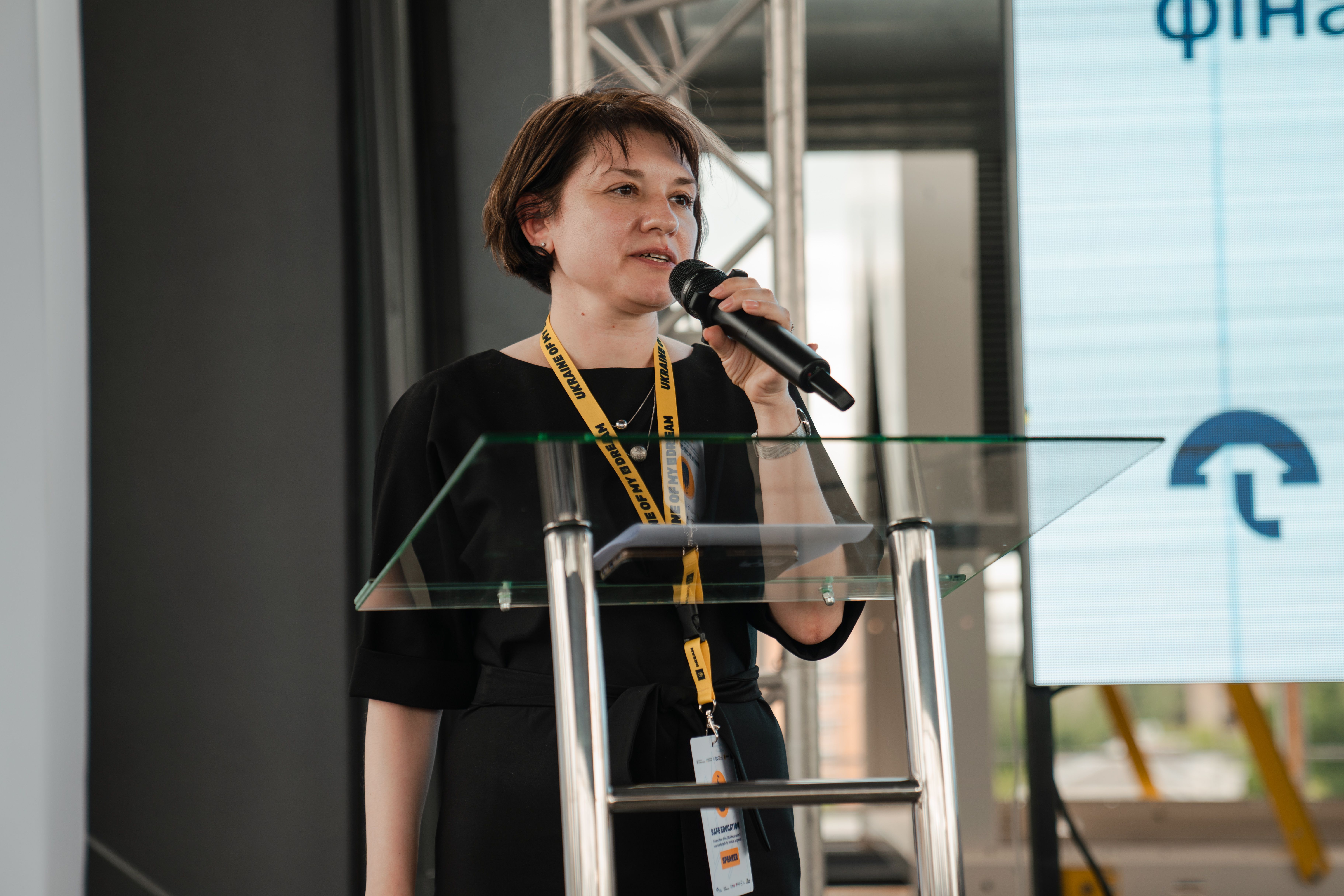
"Two years ago, during the development of a new action plan, civil society representatives initiated the creation of the DREAM ecosystem, which they proposed to the government. Today, DREAM is successfully functioning and developing, with subventions distributed through the system and cooperation with international partners. This is an example of open governance that proves the necessity and effectiveness of this approach in Ukraine and the world," said Natalia Oksha, Deputy Director of the Department of Information and Public Relations of the Secretariat of the Cabinet of Ministers, Secretary of the OGP Coordinating Council.
The main goal of the DREAM is to create a "one-stop shop" for managing restoration and modernization projects, ensuring transparency and accountability of their implementation at all stages through integration with government IT systems and services. Today, the ecosystem contains over 4,500 projects worth over UAH 226 billion from more than 1,000 communities, 23 regional administrations, 5 ministries, the Agency for Restoration and its regional services, etc.
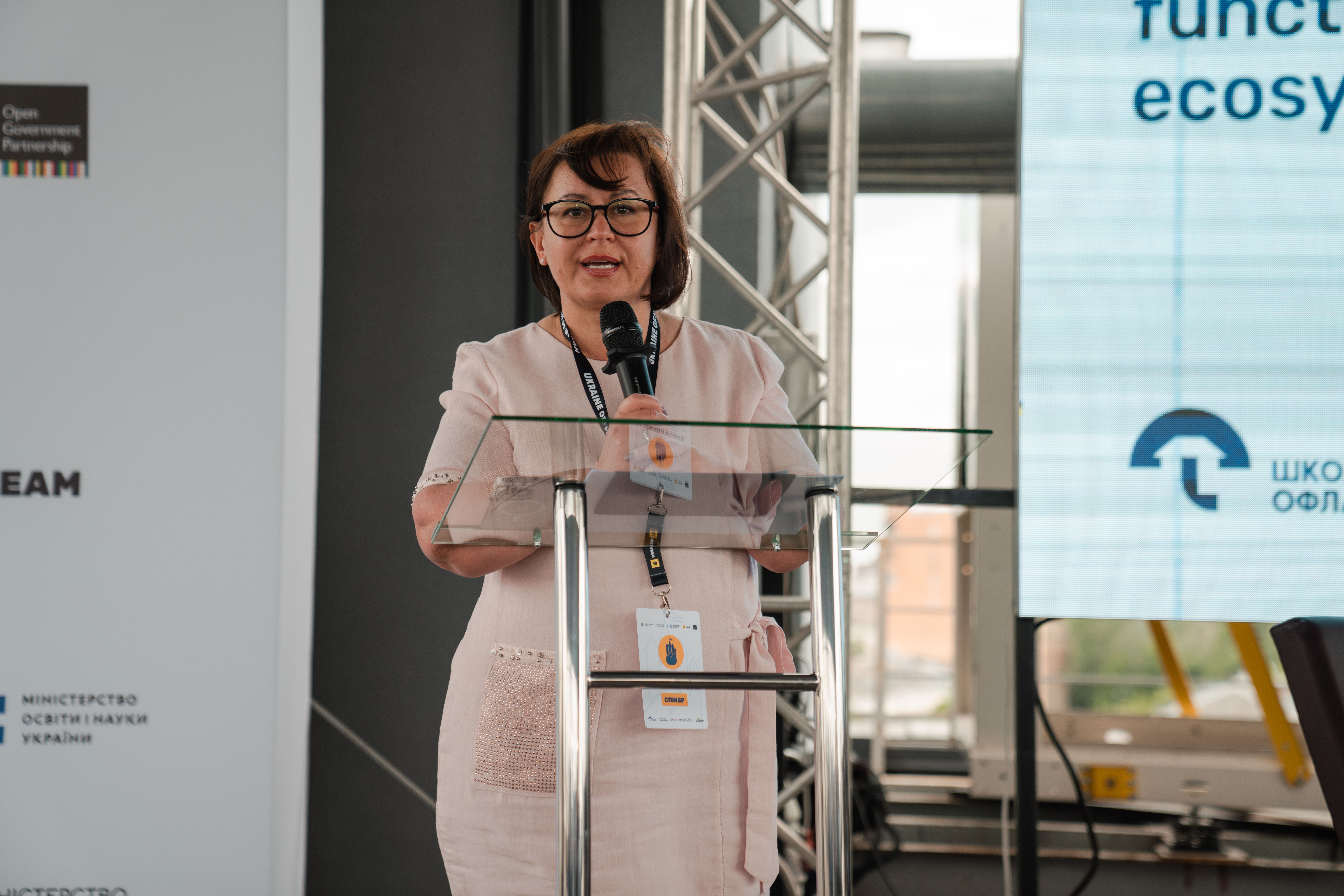
"We must realize the extent of the damage and why digitalization is so important. The Register of Damaged and Destroyed Property (RDDP) currently includes more than 330,000 real estate objects. Without digitalization, it is impossible to implement restoration on this scale. The DREAM is not only about synchronization with the Unified State Electronic System in the Field of Construction (USESC) and other government systems, it is also about accountability and clearly defined rules. Compliance with these rules allows us to ensure the transparency of the restoration, as well as to count on a high-quality result," emphasized Natalia Kozlovska, Deputy Minister for Communities, Territories and Infrastructure Development of Ukraine.
As part of the subvention distribution, communities independently created their projects in DREAM to apply for state funding. The Ministry of Education and Science of Ukraine explained in detail the conditions for submitting and selecting projects and provided the necessary information support through fortetsia.gov.ua. The key task is to provide Ukrainian children with access to high-quality and safe full-time education.
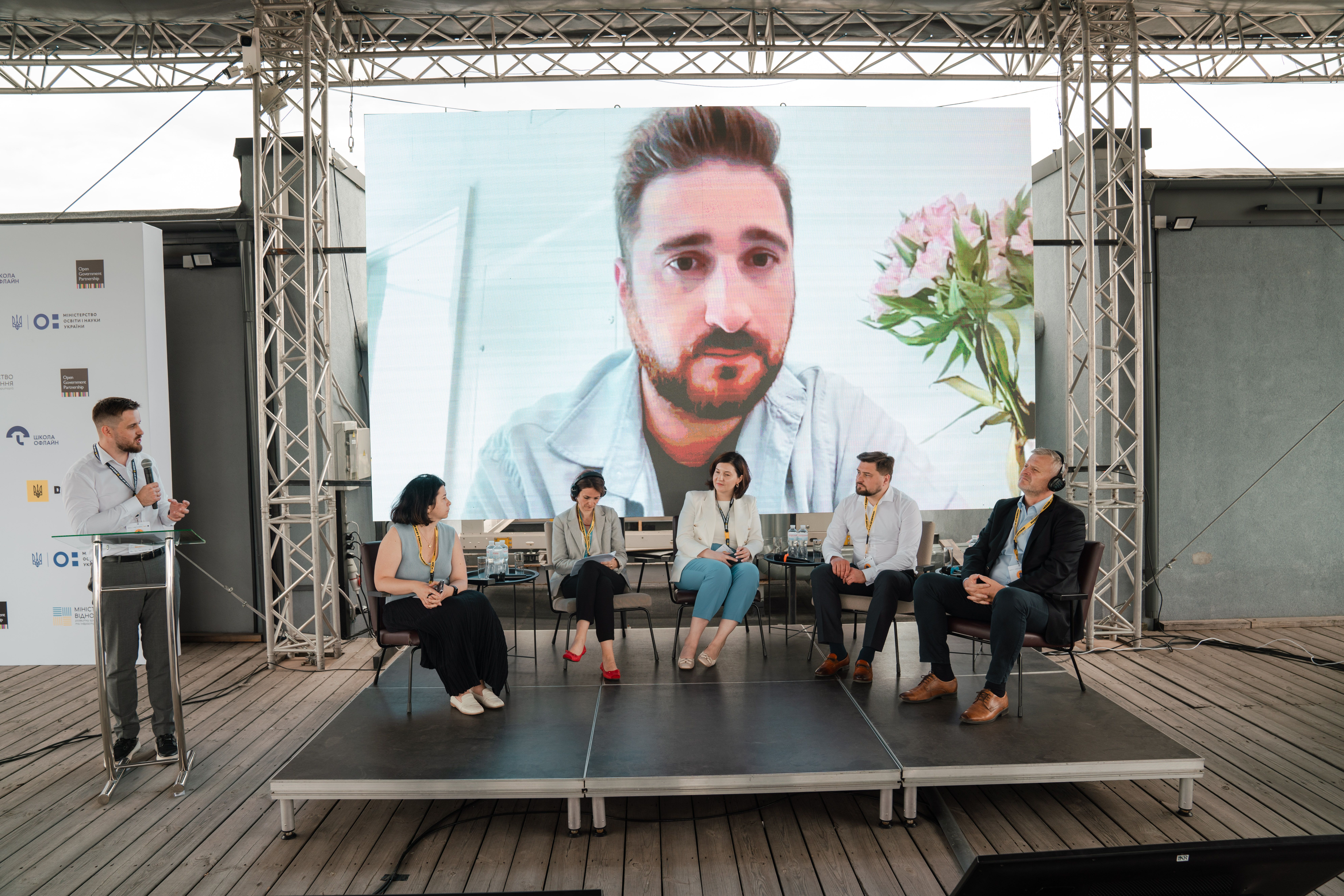
"The Ministry of Education and Science has set a goal of returning at least 300,000 pupils to full-time education by the end of the year. One of the elements of this large comprehensive policy is the arrangement of shelters. The DREAM plays a key role in this process because applications are submitted through the digital ecosystem. We are pleased to be the first ministry to test the functionality of financial programs in the DREAM," said Yevhen Kudriavets, First Deputy Minister of Education and Science of Ukraine.
In addition to a detailed description of the conditions for obtaining a subvention, the fortetsia.gov.ua portal contains reuse projects (model projects) for the construction of shelters developed with the support of UNICEF and the Howard G. Buffett Foundation. When preparing applications for subventions, communities actively used the model projects, which saved significant time and resources and increased their chances of receiving funding.
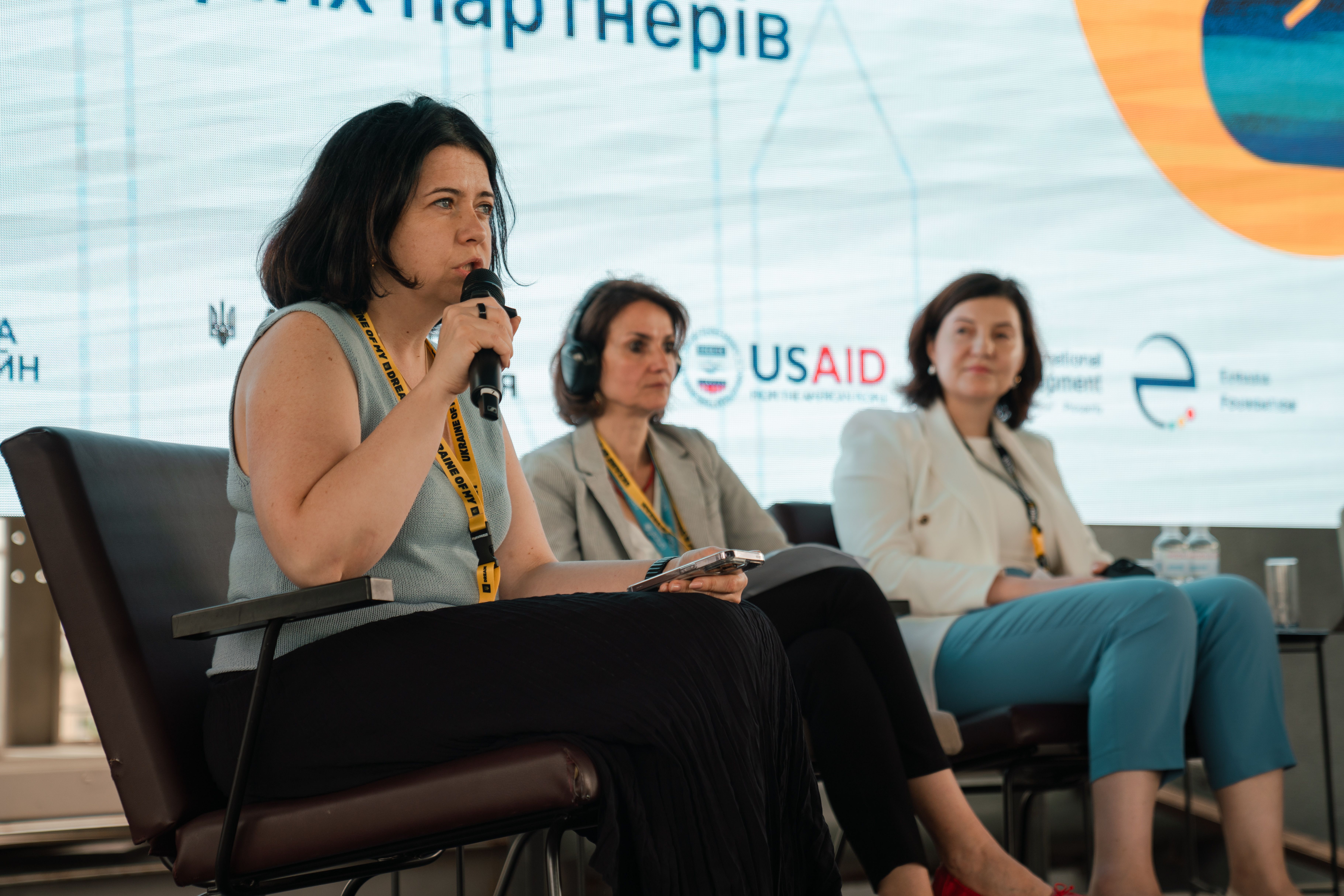
"The restoration of the economy directly depends on the situation with schools. Parents stay where their children are provided with everything they need. Thus, access to education is critical to community recovery. Understanding this impact led our Foundation to build a kitchen factory in Bucha. Later, the DREAM also became an impetus for us to support a shelter project. Thanks to the system, we now get a picture of how transparency and accountability will be ensured in the financing and implementation of the project," said Yulia Stefaniuk, Executive Director of the Ukrainian Foundation, created with the support of The Howard G. Buffet Foundation.
This year, the subvention for the arrangement of shelters in schools is UAH 2.5 billion. Communities have already submitted 108 projects/applications through the DREAM ecosystem. Of these, 50 projects with a total budget of UAH 2.19 billion have already been selected.
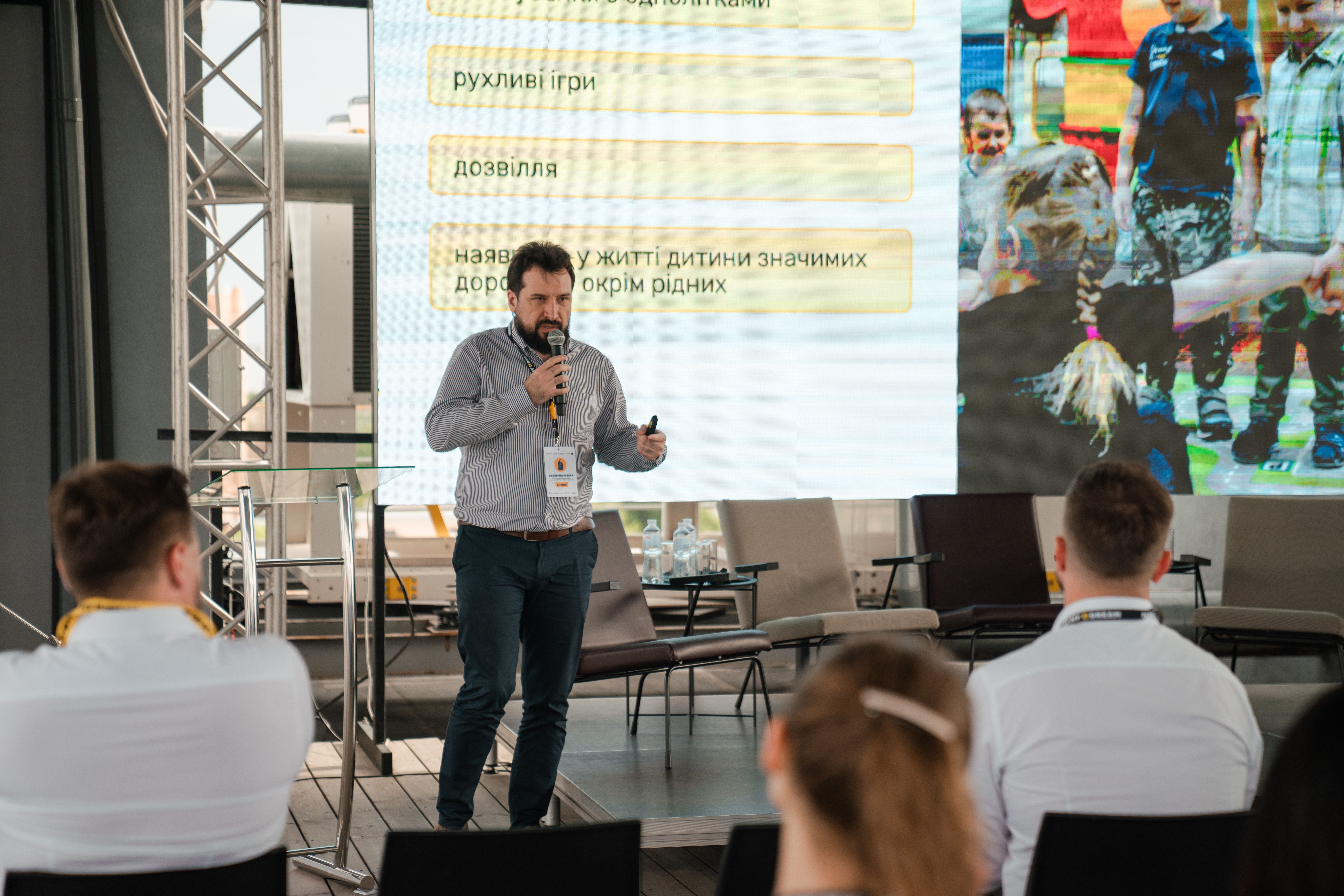
"A safe educational environment is a key condition for face-to-face learning. Distance learning lowers the level of soft skills and deprives students of socialization. Under such conditions, an entire generation may not acquire the skills needed in adulthood. That is why it is so important now to take care of safety in educational institutions and ensure the resumption of full-time education wherever possible," emphasized Andriy Stashkiv, Deputy Minister of Education and Science of Ukraine.
The DREAM team, jointly with the Ministry of Education and Science of Ukraine, conducted a series of trainings on project development and application for communities and regional administrations. In addition, community support was provided at all stages of the program.
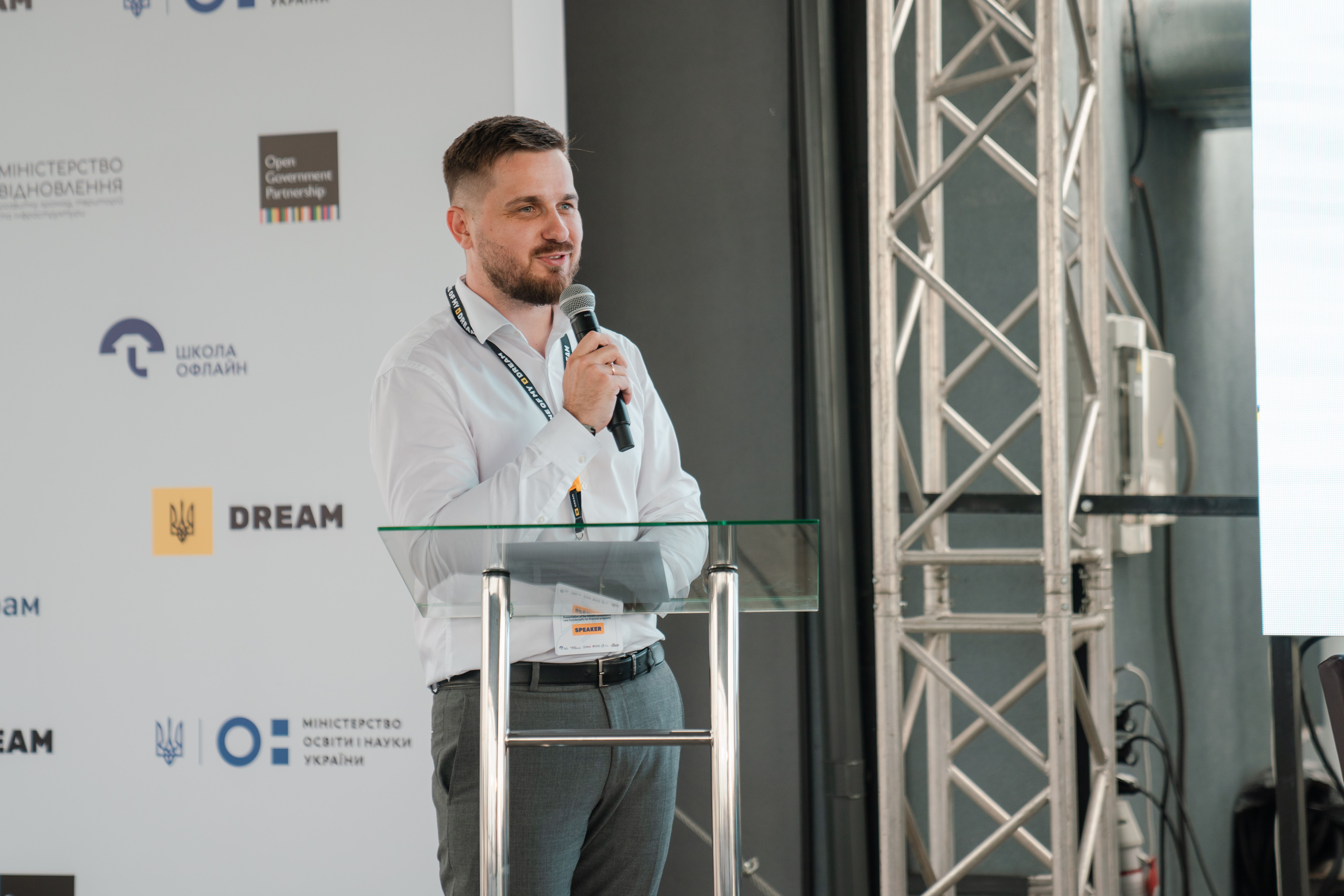
"The DREAM team is trying to build something more than an IT tool: we want to transform the public project and investment management culture. For the system to progress and develop, it needs to have users. We are grateful that so many partners around the DREAM are ready to support our ideas and efforts and develop together. Today, when we talk about the successful experience of the shelter subvention, the DREAM has already started collecting applications for arrangements of food units. In a little while, the ecosystem will implement a financial program funded by the World Bank," said Viktor Nestulia, DREAM Project Office, Open Contracting Partnership.
He added that the positive experience of working with the state subvention will become a model for implementing other financial programs through the DREAM ecosystem, both national and international. In fact, international partners are already actively using the ecosystem to review the "project bank" and open data and select projects for funding. For example, in May, UNICEF signed an agreement with the Vysokopillia village community (Kherson region) to finance a water supply network repair project selected through the DREAM.
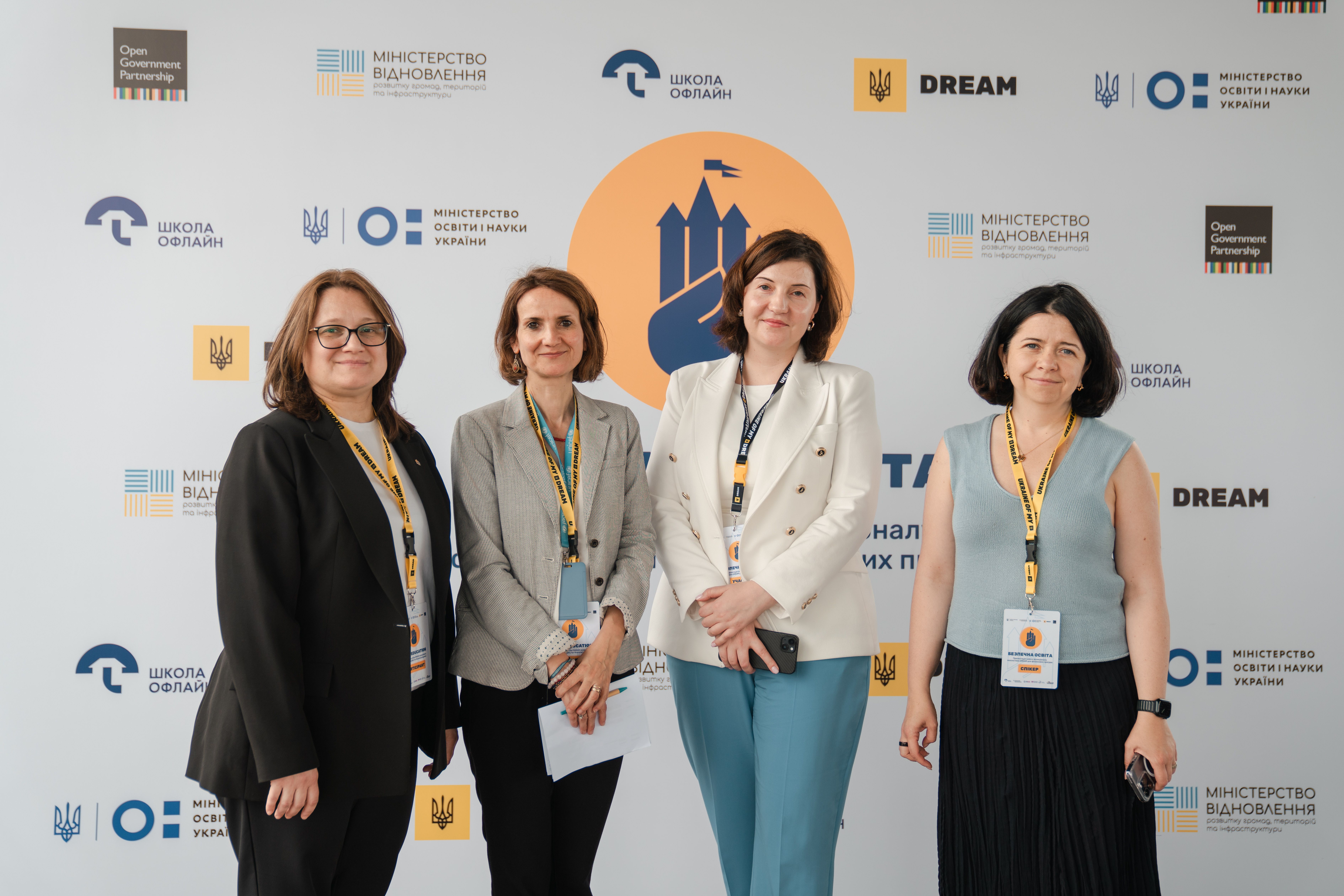
"UNICEF was the first international organization to select a project for funding directly through the DREAM. We were pleased to be the first to use this functionality and to finance the project to repair the water supply network in the Kherson region. The DREAM system is very important to UNICEF because it allows us to track how funds are spent. We hope that we will have more projects in the DREAM and encourage other international partners to familiarize themselves with the system as well," said Helena Murseli, UNICEF a.i. Chief Education.
Today, restoration and modernization projects are already being actively implemented in Ukraine with the support of international partners. The focus is on restoring housing, medical, and educational infrastructure, which allows for the resumption of life in the affected areas. At the same time, transparency and accountability at all stages are key principles of such projects.
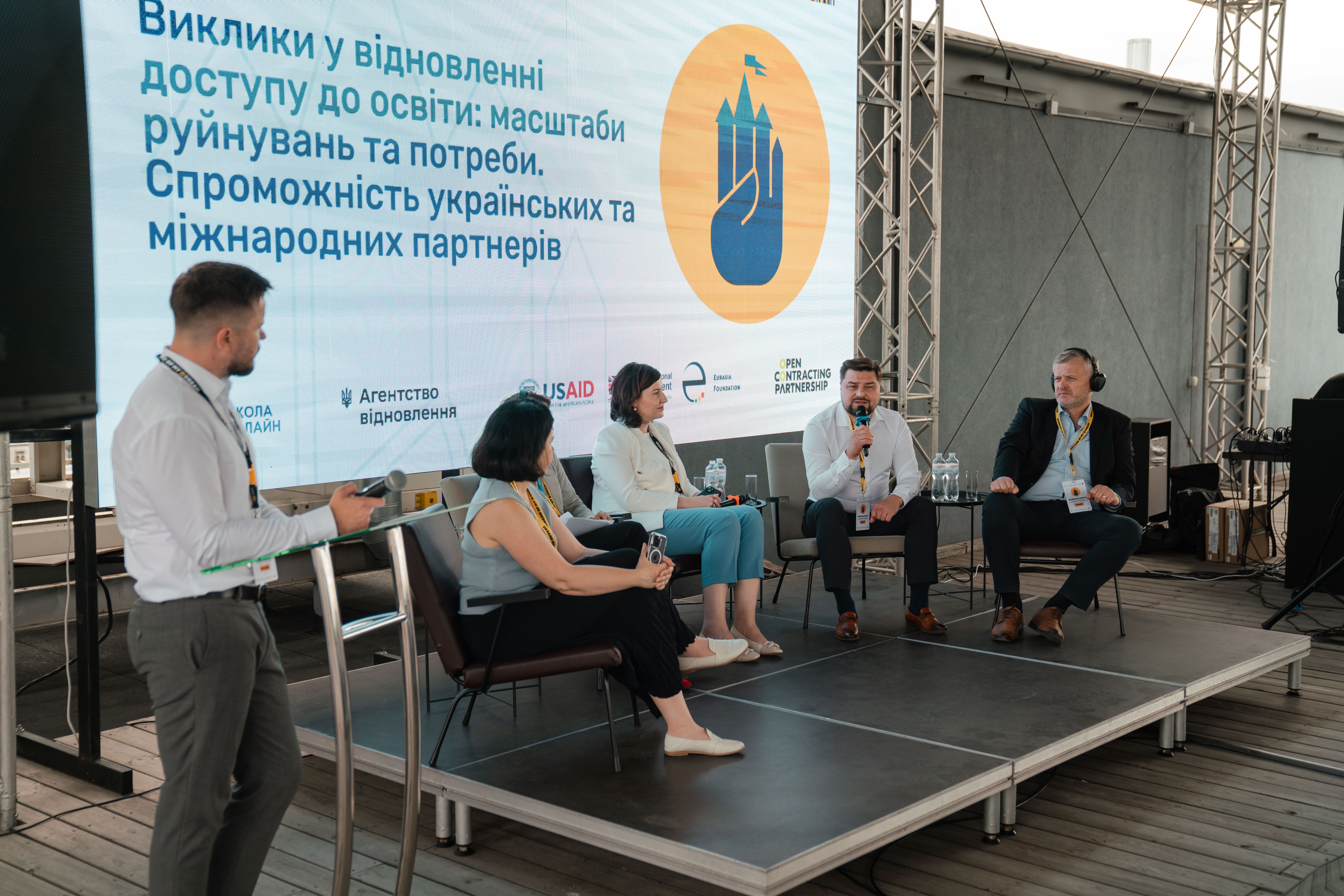
"U-LEAD also has initiatives aimed at restoring access to education. In particular, these include the School Initiative, under which we have restored 12 schools; the Project Preparation Tool, where we finance the development of project design for 9 schools, and support for the establishment of the New European Bauhaus Academy in Ukraine. We believe that these initiatives will help communities not only restore schools and kindergartens but also create qualitatively new learning environments. We are convinced that the DREAM ensures transparency and accountability of all projects and creates additional opportunities for obtaining funding for reconstruction, so we appreciate our cooperation", said Andrej Horvat, GIZ Deputy Programme Director, U-LEAD.
Digital tools and open data are essential components of project management, as well as ensuring the trust of international restoration partners. The DREAM allows us not only to assess the real needs of communities for restoration but also to track project implementation at all stages and be sure that the project will be implemented efficiently and on time. Lithuania was the first country to start actively using the DREAM. The successful cases of the restoration of the Ruta kindergarten in Irpin and the Lithuanian-Ukrainian Lyceum in Borodyanka are already well represented in the ecosystem.Among other things, a unique autonomous shelter was built at Borodyanka Lyceum at the expense of Lithuania, and 5 more similar projects will be implemented in regions close to the front line thanks to a joint EU-Lithuania project.
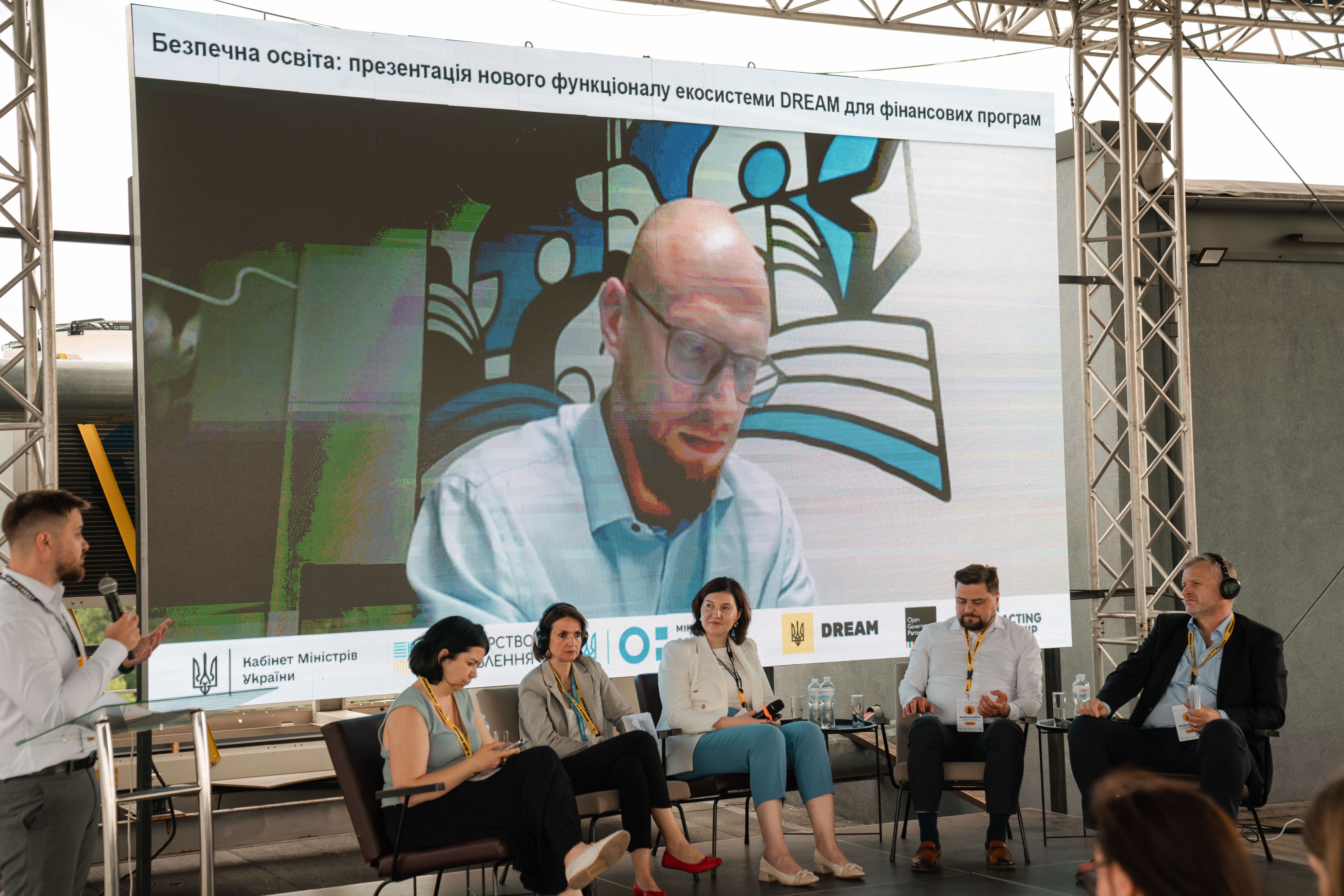
"The DREAM system allows us to understand the scale and priorities of restoration in Ukraine. International partners from different countries should understand that the war is not only about damaged critical infrastructure, it is also about limited access to education. We all need to pay attention to the crisis in the education sector and help resolve it. Moreover, this can now be done using the capabilities of the DREAM ecosystem. And also to ensure that the kindergarten or school will be restored on time," emphasized Arturas Žarnovskis, Head of the Co-create Future of Ukraine program at the Central Project Management Agency.
During the conference, awards were presented to participants and partners of the subvention distribution project, including representatives of communities and regional administrations. Representatives of local governments and regional authorities are the key users of financial programs and digital recovery tools, including the DREAM ecosystem.

Yuriy Yandulsky, Deputy Head of the Dnipropetrovsk Regional State Administration, said that the administration prioritizes using the DREAM and maximizes the system's capabilities when preparing applications for subvention.
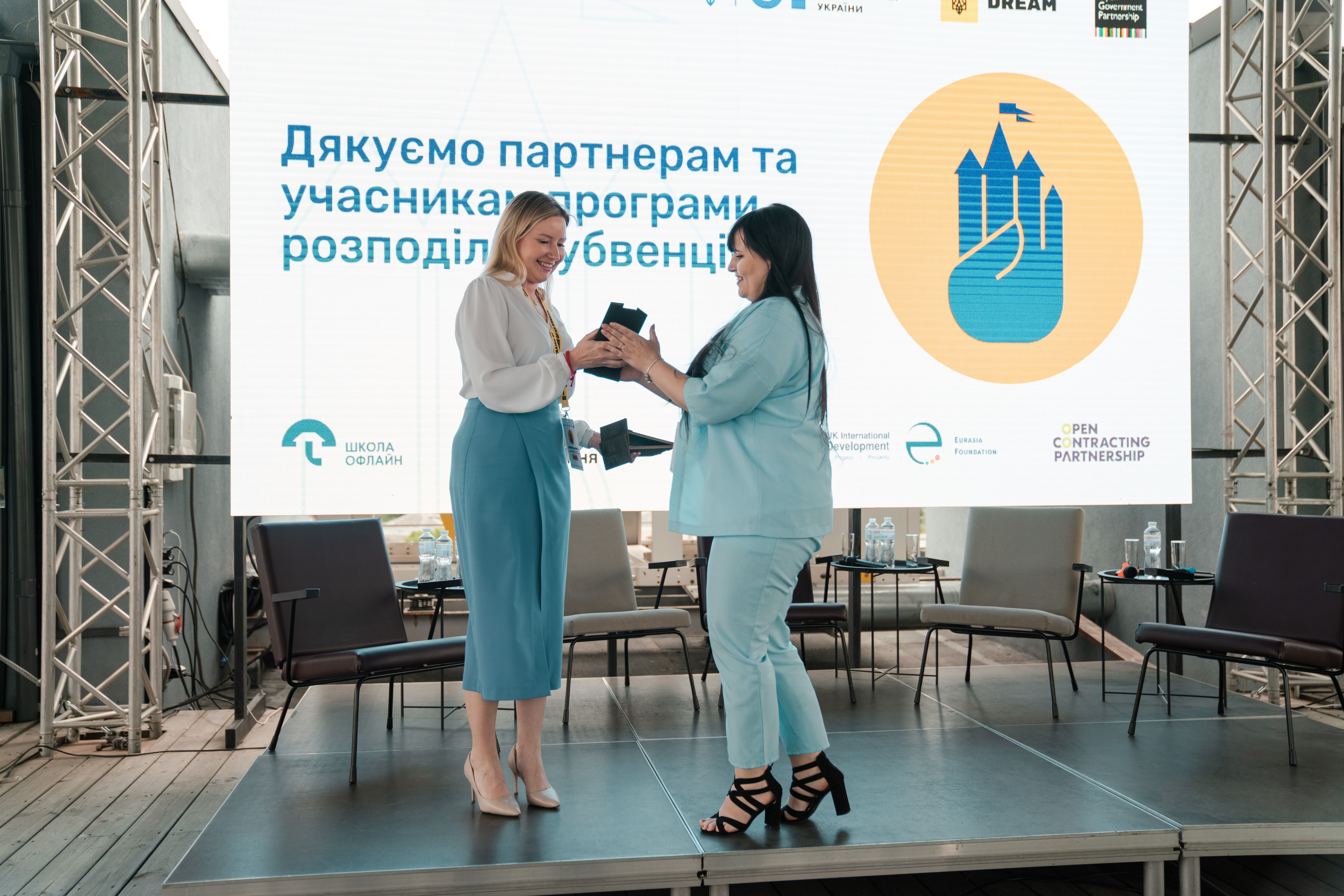
For her part, Yulia Ostapovych, Head of the Department of Education and Humanitarian Development of Muzykivka Village Council, noted that using the ecosystem helped the community obtain funding for the overhaul of the lyceum's shelter. In addition, the community has added another shelter project to the system, which both pupils and community residents will use.
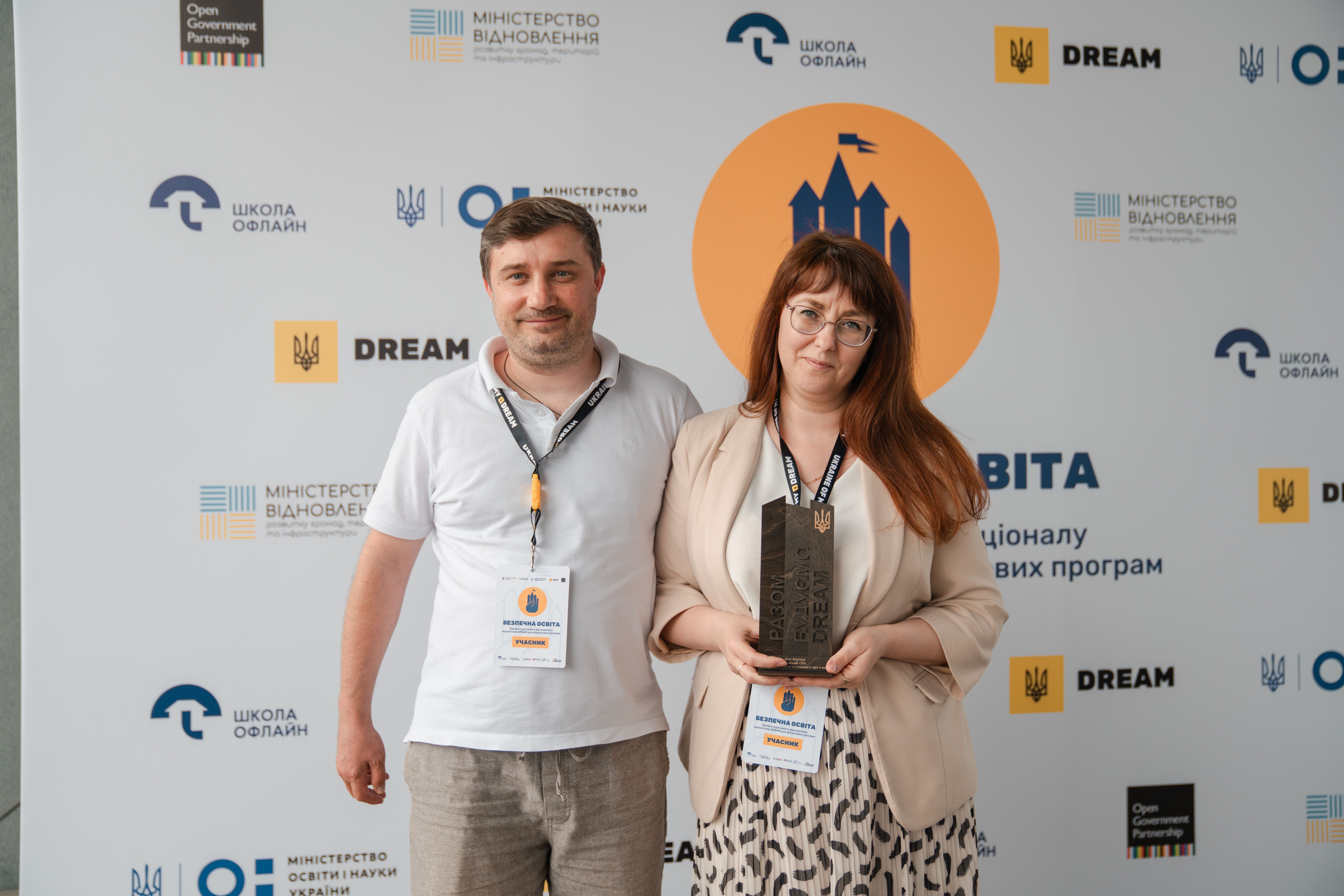
The successful experience of allocating subventions and transparently financing the restoration strengthens the perception of Ukraine as a country that follows the principles of open governance. After all, its fundamental principles are transparency, accountability, and cooperation with business and civil society.
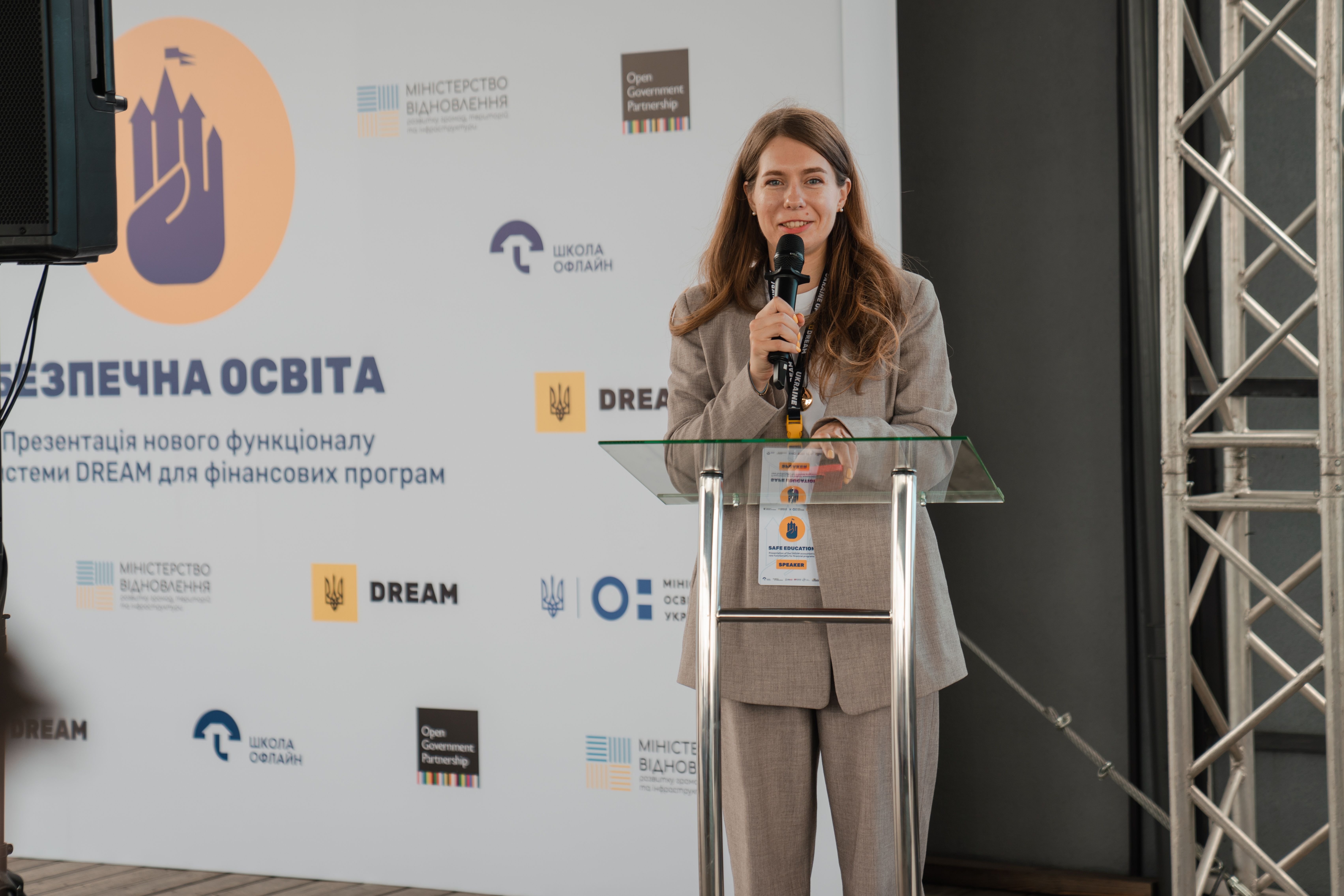
"Today, in the field of open government, Ukraine is best known for the successful launch and operation of Prozorro. But the DREAM should become the next such system, the experience of which international partners will want to implement. Both of these cases are primarily about effective interaction between the state, civil society, and international partners. These are examples of open governance that we want to follow," added Anastasia Kozlovtseva, Regional Manager of the Open Government Partnership.
The conference "Safe Education: Presentation of the New DREAM Functionality for Financial Programs" was organized jointly by the Secretariat of the Cabinet of Ministers of Ukraine, the Ministry for Communities, Territories and Infrastructure Development of Ukraine, the Ministry of Education and Science of Ukraine, the Open Government Partnership, the DREAM Project Office and the Open Contracting Partnership.
Recording of the conference broadcast in English: https://bit.ly/4aIpxoX
About the Open Government Week
This year's Open Government Week is being held in the countries participating in the international Open Government Partnership Initiative from May 27 to 31. For five days, state and local governments, together with partners from civil society and international organizations, are taking steps to promote democracy, increase the level of openness and transparency of governance, and establish cooperation with members of the public.
